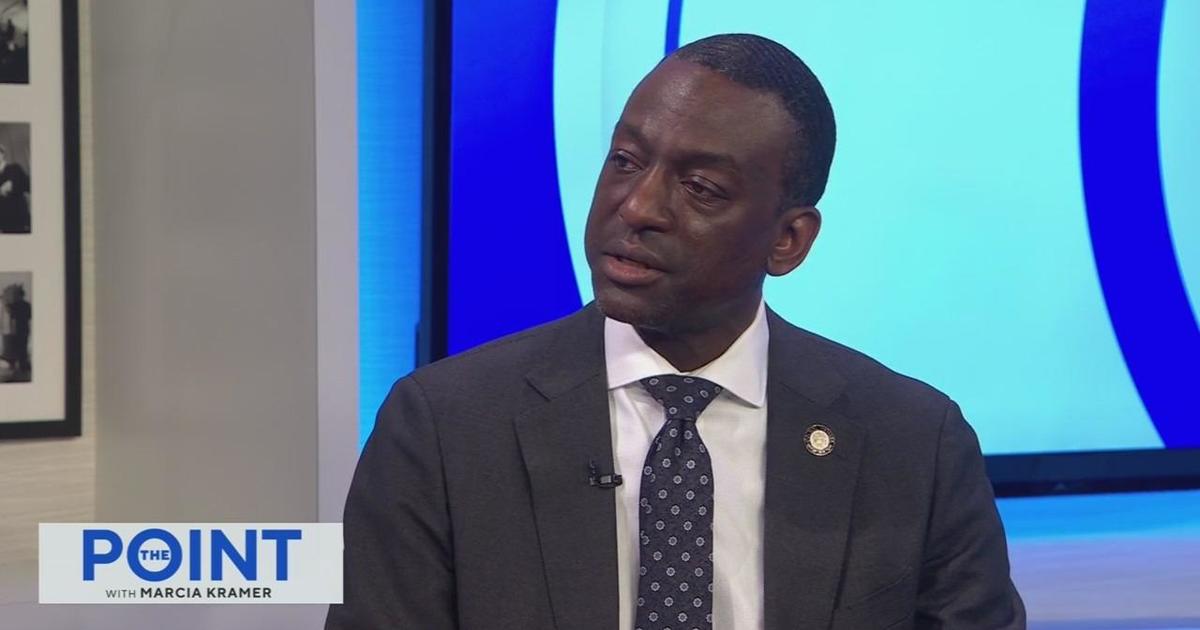AP: In NJ, Police Layoffs Lead To Drop In Arrests
CAMDEN, N.J. (AP) -- Police in five New Jersey cities where departments have had deep layoffs are making fewer arrests for minor offenses -- a trend that experts fear could lead to a rise in the most serious crimes.
Newark, Trenton, Paterson, Atlantic City and Camden, all densely populated cities with significant crime problems -- all faced with precarious tax revenue and declining aid from a state government that is also cash-strapped -- have all made deep cuts in their police departments since the start of 2010.
An Associated Press analysis of municipal court data shows that when police are laid off, department priorities shift: Arrests and summonses of all kinds drop, with enforcement for minor crimes and traffic violations suffering the most as police focus their remaining resources on more serious offenses.
The strategy may make sense, but experts say it leaves a troubling gap in law enforcement.
"People are committing crimes and they're not suffering the consequences for it," said Camden County Prosecutor Warren Faulk. "I think it has emboldened those who are committing the crimes. They do not get arrested, and consequently, they continue committing these crimes."
A 61-year-old day care employee from North Camden who didn't want to give her name for fears of her safety, said drug dealers in her neighborhood have become more brazen since the layoffs. In fact, she said, they've taken over her stoop. "You chase them out of your steps and they go for 5 minutes. Then they're back again."
Denise Skinner, 51, who lives in the Waterfront South neighborhood, a haven for drug dealing and prostitution, is frustrated as she sees drug dealers continue to man their corners.
"It's getting worse," said Skinner, who lives in Camden's Waterfront South neighborhood. "We don't have enough cops."
The data, collected by the state judiciary, breaks down arrests and summonses by broad category of crime, but not specific offenses.
From January 2009 through November 2010, Newark police made arrests or issued summonses about 5,100 times a month for offenses classified as "other" infractions, such as curfew, noise and littering violations. Since the layoffs, the AP found, the number has dropped by nearly half, to 2,600 a month.
In Camden, monthly reports of traffic summonses for infractions like speeding and running stop lights plunged from 3,820 to 1,850 post-layoffs.
In Paterson, arrests for charges like shoplifting and possession of small amount of drugs went from just over 700 a month before the April layoffs to an average 545 in the five months afterward.
The drop-off in arrests might not be immediately noticeable on the streets, but police experts are worried about the long-term impact.
Since the 1980s, police departments across the country have paid more attention to so-called quality-of-life crimes. A crackdown on minor infractions, the idea goes, creates more community pride and puts behind bars more people who might otherwise be committing serious crimes.
That approach to policing is widely credited with having sharply cut rates for major crimes in New Jersey and across the country over the past three decades.
The new data show that layoffs are undermining that approach, said Wayne Fisher, director of the Police Institute at Rutgers University's Newark campus.
"We begin the downward spiral," Fisher warned. "We may go back to the kind of crime level we were all used to in the 70s and into the 80s."
In Camden, a city that ranks as one of the most impoverished and crime-ridden in the nation, about half the force was laid off in January. The cuts in the other cities were not as extreme. All the cities have secured money -- largely in federal grants -- to bring back some officers. But so far, only Atlantic City's force is close to the size it was before the layoffs.
As layoff days approached, officers turned in their badges and lined up their boots on city sidewalks to symbolize what was being lost. Some officers took jobs on growing police forces in places like Nashville, Tenn.
Their unions have said the cutbacks will directly cause crime in all categories to spike. While that could be true, it's a hard case to prove.
In Camden, for instance, reported crime has been up in almost all categories this year compared with 2010 and 2009. But crime has multiple causes, and experts caution that it's hard to determine how much of the increase could be because of layoffs.
The comprehensive arrest data collected by the New Jersey courts provide a picture of how police priorities have changed in the wake of layoffs.
The statistics include arrests and summonses by offense category and are compiled monthly. The AP reviewed data from January 2009 through September in order to capture trends before and after police layoffs.
In four of the New Jersey cities with deep cuts, the story has been similar. There have been fewer arrests per month, post-layoffs, for most types of offenses, but the biggest decreases are for the least serious crimes. In Trenton, where the layoffs came in mid-September, it's too early to tell, though arrests in every kind of case declined sharply in September in the capital city.
"In general, the less-serious stuff is treated with more discretion," said Mike Maxfield, a criminal justice professor at New York City's John Jay College. "You can't write off a bank robbery, you can't ignore a homicide."
Officials in Newark, Trenton, Camden and Paterson have either declined to be interviewed about the drop in arrests or not responded to requests. In general, officials in cities where officers have been laid off have taken the position that they would prioritize the most important crimes and find ways to do more with fewer officers.
The dramatic declines in monthly arrests seem to be unique to the cities with deep layoffs. Total statewide monthly arrest figures -- including the five cities -- have been stable in the period reviewed by the AP. And in Jersey City, the state's largest city without layoffs, fluctuations in arrests have been far milder than in the cities where police have been laid off.
Newark has the easiest story to tell by the numbers. In New Jersey's biggest city, the layoffs came all at once, with about 150 officers, or 15 percent of the force, let go in November 2010. The city received a federal grant in September to hire back 25 of them, but they have not returned to the force yet.
From January 2009 to November 2010, the city had an average of 1,421 arrests a month for indictable offenses -- the most serious crimes, ranging from drug dealing to murders. From December 2010 to September 2011, there were 1,296 per month, a decrease of 9 percent.
Arrests for lesser offenses dropped more sharply after the November 2010 layoffs -- 16 percent for disorderly persons and 49 percent for "other" offenses, a category that includes fish and wildlife violations and local laws such as curfew and noise ordinance violations. Parking summonses -- handed out mainly by the city's parking authority, which is separate from the police department -- dropped 12 percent. In an oddity, moving traffic violations were up by nearly 4 percent.
In Paterson, monthly arrests for indictable offenses were down 13 percent after the April 2011 layoffs, 22 percent for disorderly persons charges and 40 percent for other minor offenses.
And in Camden, monthly arrests and summonses were down in every category after the layoffs there in January: 21 percent for indictable crimes, 25 percent for disorderly persons and 50 percent for ordinance and other violations. Unlike in Newark, moving traffic violations also fell by more than 50 percent.
Camden's declines were even larger in the first months after layoffs before officers started being rehired. That's been true elsewhere, as well. In Atlantic City, officers were laid off and rehired in multiple waves until the August, when the last of the laid-off officers were brought back. In August and September -- a small sample size, to be sure -- there were slightly more arrests per month in the resort city for indictable crimes than there were before the layoffs.
Much of this impact was foreseen even as layoffs were announced, even though officials in some cities promised just as many patrols as they had before.
In some cities, police won't go to the scene of many fender-benders. Instead, the people involved in minor crashes fill out their own reports and mail them in. In Camden, Police Chief Scott Thomson announced when the layoffs were made that police wouldn't respond to minor theft complaints any more, either.
Rutgers' Fisher said the police officers who remain spend much of their shifts running from call to call. That leaves little opportunity for them to deal with loitering and other violations they might spot on their beat.
"It's an important consequence of these layoffs that needs to be reported to the public," Fisher said. "There is a price as a result of these cutbacks in public safety positions."
Faulk, the Camden County prosecutor, said that in Camden, moving detectives to patrols has hurt the department's ability to investigate.
"The patrol officers respond to a crime, they get the basic information," he said. "If there's an individual around who's responsible, they'll make an arrest."
If there's not, though, there might not be anyone available to investigate further on lesser crimes.
---
(Copyright 2011 by The Associated Press. All Rights Reserved.)



